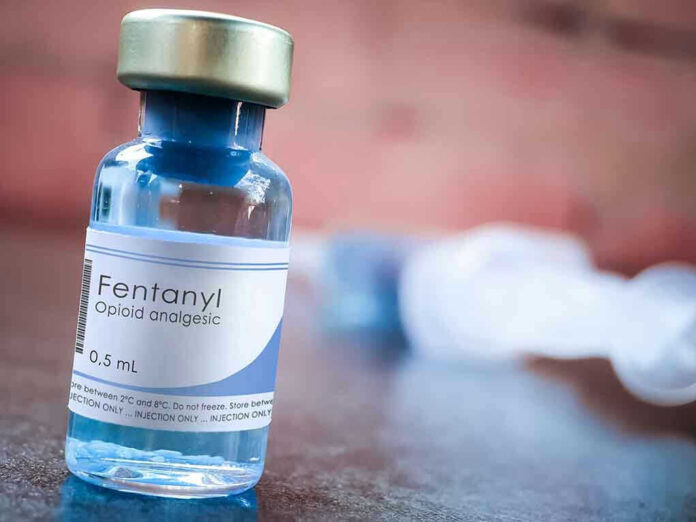
Federal law enforcement has finally struck at the heart of China’s chemical supply chain, indicting 22 Chinese nationals, four Chinese companies, and three Americans in a fentanyl bust that exposes the scale of foreign threats undermining U.S. communities and sovereignty.
Story Snapshot
- FBI Director Kash Patel announced major indictments targeting Chinese suppliers and American collaborators in Operation Box Cutter.
- Authorities seized enough fentanyl precursors to potentially kill 70 million Americans, revealing the extent of foreign infiltration.
- This marks the first U.S. operation to directly indict Chinese chemical companies for trafficking fentanyl ingredients, shifting the focus to international supply lines.
- Multi-agency cooperation and financial sanctions signal a new era in combating synthetic opioid trafficking.
FBI Targets Chinese Chemical Companies Supplying Fentanyl
On September 3, 2025, FBI Director Kash Patel announced the indictment of 22 Chinese nationals, four chemical companies based in China, and three Americans following a multi-year investigation into the fentanyl precursor supply chain. Operation Box Cutter, the codename for this initiative, marks the first time U.S. law enforcement has directly targeted foreign chemical producers responsible for enabling America’s opioid crisis. The investigation mapped how these companies ship potent synthetic drug ingredients into the country, fueling overdose deaths and threatening public health and safety.
This strategic shift follows years of frustration with past policies that focused mostly on street-level distributors or domestic actors. By indicting Chinese nationals and corporations, the U.S. sends a clear message to overseas suppliers operating in regulatory gray zones. These companies, often disguised as legitimate pharmaceutical businesses, exploited gaps in enforcement to flood American streets with deadly substances. Financial tracking, undercover operations, and coordinated law enforcement efforts across agencies enabled authorities to identify and disrupt these international networks, reflecting a more aggressive approach that many conservatives have long demanded.
Operation Box Cutter: Law Enforcement and Sanctions Strategy
The FBI, DOJ, and U.S. Treasury Department coordinated to employ both criminal indictments and financial sanctions. Treasury imposed asset freezes on targeted individuals and companies, limiting their ability to operate internationally. Some U.S.-based defendants are already in custody, while efforts continue to apprehend indicted foreign nationals. This blend of aggressive law enforcement and financial pressure represents a new era in fighting transnational crime, leveraging America’s economic power to disrupt illicit networks at their source. For communities long ravaged by opioid addiction, such actions offer hope for lasting change and renewed protection of public safety.
Operation Box Cutter’s intelligence-driven approach mapped not just the actors involved but the entire supply chain—uncovering how precursor chemicals move from Chinese factories through global intermediaries to American distributors. The operation’s success depended on multi-agency cooperation, including data analysis from public health bodies like the CDC, which confirmed a recent decline in overdose deaths partially attributable to these enforcement actions. Experts emphasize that hitting the supply chain, rather than just local dealers, is essential for lasting impact.
Impact on U.S. Communities and International Relations
The immediate result is a significant disruption in fentanyl availability, with authorities seizing enough chemicals to threaten tens of millions of lives. For American families devastated by synthetic opioids, this is a critical victory after years of perceived government inaction. The operation also sets a precedent for future efforts, making it more difficult for foreign entities to evade responsibility for fueling America’s drug crisis. However, experts caution that traffickers may adapt by shifting routes or chemicals, and international cooperation will be vital to maintain pressure on foreign suppliers.
» FBI indicts 3 Americans, 22 Chinese nationals and 4 chemical companies after seizing ‘Enough fentanyl to kill 70M Americans’ – Conservative Angle https://t.co/mZUhcR7qRv
— Jerry Dean Bowers (@vipertoxin) September 4, 2025
Politically, the indictments and sanctions could strain U.S.-China relations, prompting diplomatic negotiations or potential retaliatory measures. The broader pharmaceutical and chemical sectors may face increased scrutiny and new compliance requirements. Law enforcement leaders argue that this assertive stance aligns with the Trump administration’s promise to defend American sovereignty, uphold conservative values, and protect families from foreign harm. While questions remain about the long-term effectiveness and the arrest status of all indicted individuals, the operation’s scope and ambition represent a major milestone in the fight against opioid trafficking.
Expert and Official Reactions
Industry experts and law enforcement leaders praise the operation for its intelligence-driven strategy and willingness to confront international actors directly. Public health officials note a correlation between these enforcement actions and declining overdose deaths, though some urge continued vigilance as traffickers may adapt. Drug policy scholars highlight the need for ongoing international cooperation and regulatory harmonization, warning that disruptions to supply chains can lead to new trafficking tactics. The operation is widely seen as a model for future efforts, combining criminal, financial, and diplomatic tools to defend American lives and values.
Sources:
UPI: U.S. busts China-based fentanyl ring, charges 29 in operation
FBI official statements and Director Kash Patel’s biography
Congressional testimony and official documents
































